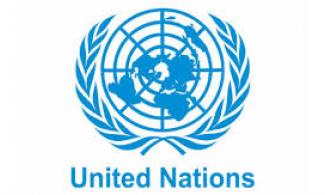
UN official also said the body urgently needs a $5million donation in a matter of weeks to sustain the programme.
The United Nations World Food Programme has said the agency may soon cut its food rations to women and children in the Boko Haram-ravaged North-Eastern region of Nigeria.
Chris Nikoi, the West Africa Regional Director of the UN WFP stated this, while noting that funding sources had become limited warning that over half a million people benefitting from its food aid may be shut out.

According to a statement shared in Abuja on Saturday, Nikoi said, “Cutting rations means choosing who gets to eat and who goes to bed hungry. We are seeing funding for our life-saving humanitarian work dry up just at the time when hunger is at its most severe.”
According to the News Agency of Nigeria, the UN official also said the body urgently needs a $5million donation in a matter of weeks to sustain the programme.
The number of internally displaced persons in Boko Haram ravaged states of Borno, Yobe and Adamawa surpassed two million in September 2021, reaching another grim milestone, the director noted.
A cut in the WFP supply in the area would compound woes as severe hunger reached a five-year high in the country. Unending insurgency, which has hampered farming, has been worsened by the socio-economic fallout from COVID-19.
“Our food assistance is a lifeline for millions whose lives have been upended by conflict and have almost nothing to survive on. We must act now to save lives and avoid disruptions to this lifeline,” Nikoi added.
The WFP director said that current food security analyses showed that 4.4 million people in North-East Nigeria did not know where their next meal would come from, and over one million children are already malnourished.
He cited continued attacks on communities by non-state armed groups, harsh lean season conditions amid an economy dealing with the fallout from the COVID-19, as portending great danger for the people.
Nikoi added that high food prices and a severe reduction in household purchasing power had also contributed to a bleak outlook for the most vulnerable people in North-East Nigeria.